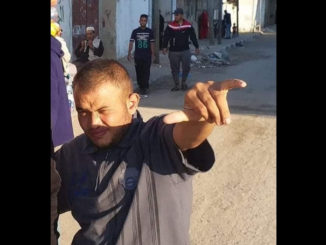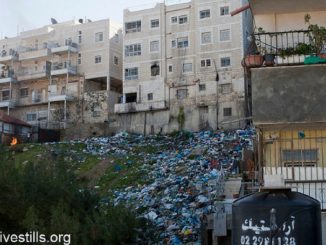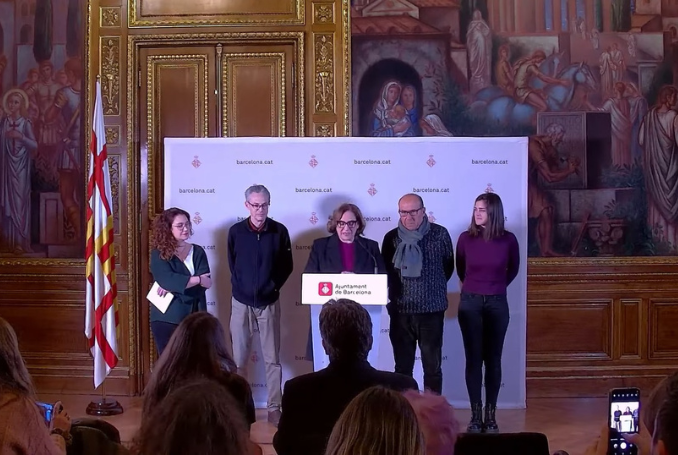
By John McAulay
Flanked on either side by a Palestinian and a Jew, and with a mural depicting Christian imagery as a backdrop. It is in this setting that Barcelona’s mayor, Ada Colau, made a historic announcement on Wednesday: the European metropolis would become the first to put all institutional relations with Israel on hold, including its twinning agreement with Tel Aviv. The reason behind the move? Israel’s practice of apartheid against Palestinians.
Credit for the decision should be shared, however. That’s because for over a year and a half now, an organization of activists under the name ‘Enough complicity with Israel’ has been publicly pushing forward the proposal, slowly but surely.
An attractive social media campaign toyed with tourism advertisements and invited viewers to visit Tel Aviv, “the best apartheid in the world”. And demonstration was also held in front of the City Hall on a fiercely windy January evening, with the striking image of 231 pairs of shoes laid out to remember those killed by the Occupation forces in 2022.
In a city where Palestinian suffering hits close to home, the initiative was quickly backed by a diverse coalition of over a hundred local groups, as well as several thousand neighbors.
With sufficient popular support, a vote was expected to take place at the end of February which would have seen political parties battling each other to decide whether ties with Israel were severed or not. With local elections within sight, it would’ve been unsurprising if a majority of groups opted to forgo this risky move and kept things as they were. But in an unexpected turn of events, the city’s mayor chose to take matters into her own hands and ensure that Barcelona took a determined step in solidarity with Palestinians.
A Damning Letter to Benjamin Netanyahu
In fact, the head of the local government was not afraid to express concerns about human rights abuses directly to her national counterpart in Israel, Benjamin Netanyahu. In an open letter to the Prime Minister, she repeatedly used the term ‘apartheid’, unfazed by the inevitability of harsh criticism from the Zionists.
Ada Colau marched on, insisting that the situation in the region had surpassed all limits and that the Occupation forces had been allowed to act with impunity for too long. “As Mayor of Barcelona, I cannot remain impassive with a systematic violation of the basic rights of the Palestinian people”, she explained.
The move is a clear example of what the BDS (Boycott, Divestment, Sanctions) movement looks like: there can be no normal state of affairs with the Occupation while it is actively violent against Palestinians. That’s precisely why Barcelona opted to suspend its ties “temporarily” with the Jewish State: the relationship can be restored, but only when Palestinian human rights are respected, and international law is complied with. Just last year, the United Nations General Assembly condemned Israel 15 times, more than all other countries in the world put together.
During the speech in which she announced her decision, Barcelona’s mayor also spoke about the city’s commitment to “oppressed peoples”. In fact, Colau already froze its twinning agreement with Saint Petersburg after the Russian invasion of Ukraine last year, so it was only fair to apply the same standard regarding Israel’s occupation of Palestine. “We are a city that has an extremely long history of cooperation with many Mediterranean territories”, the mayor explained.
The Three-way Agreement that Betrayed Palestinian Hopes
Barcelona’s link with Tel Aviv was, in fact, a failed example of this cooperation effort. The twinning relationship between both conurbations on either side of the Mediterranean stretched back almost twenty-five years, to the 1990s, a period marked by the general optimism that the Oslo Accords had brushed onto the peace process.
A solution to the so-called conflict seemed close, and Barcelona wanted to play an active part in it. That’s why in 1998, the mayor of Barcelona opted to invite his counterparts from Tel Aviv and Gaza in order to sign a three-way Friendship and Partnership Agreement.
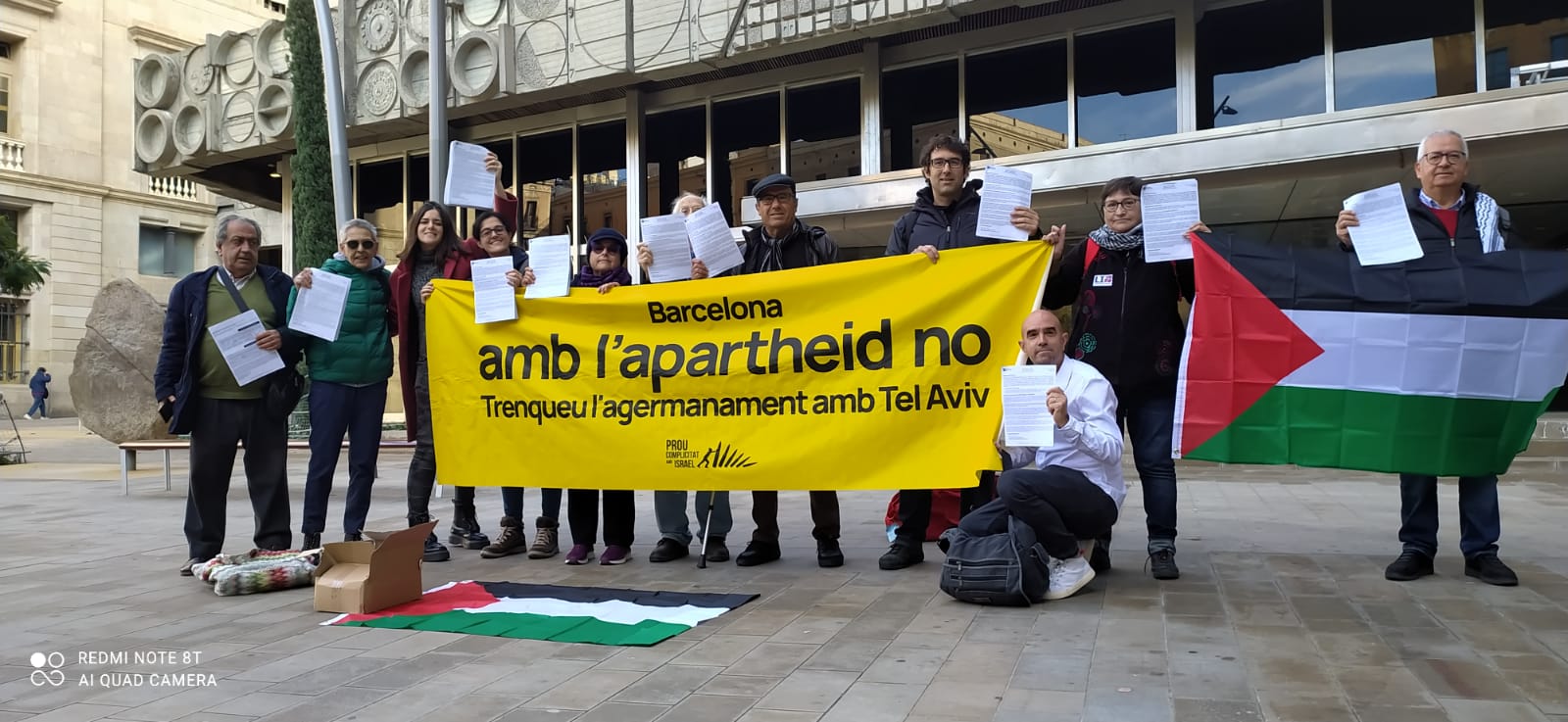
The founder of the Palestinian Community of Catalonia, Salah Jamal, remembers that occasion well. He was there that day, and also signed the deal. “I was hopeful”, he admits, begrudgingly, to Palestine Chronicle. “I thought that things would work out”.
Both Tel Aviv and Gaza pledged to share experiences and knowledge, and actively contribute to the betterment of the conditions in the region. However, Jamal explains that he was inevitably skeptical of this promise.
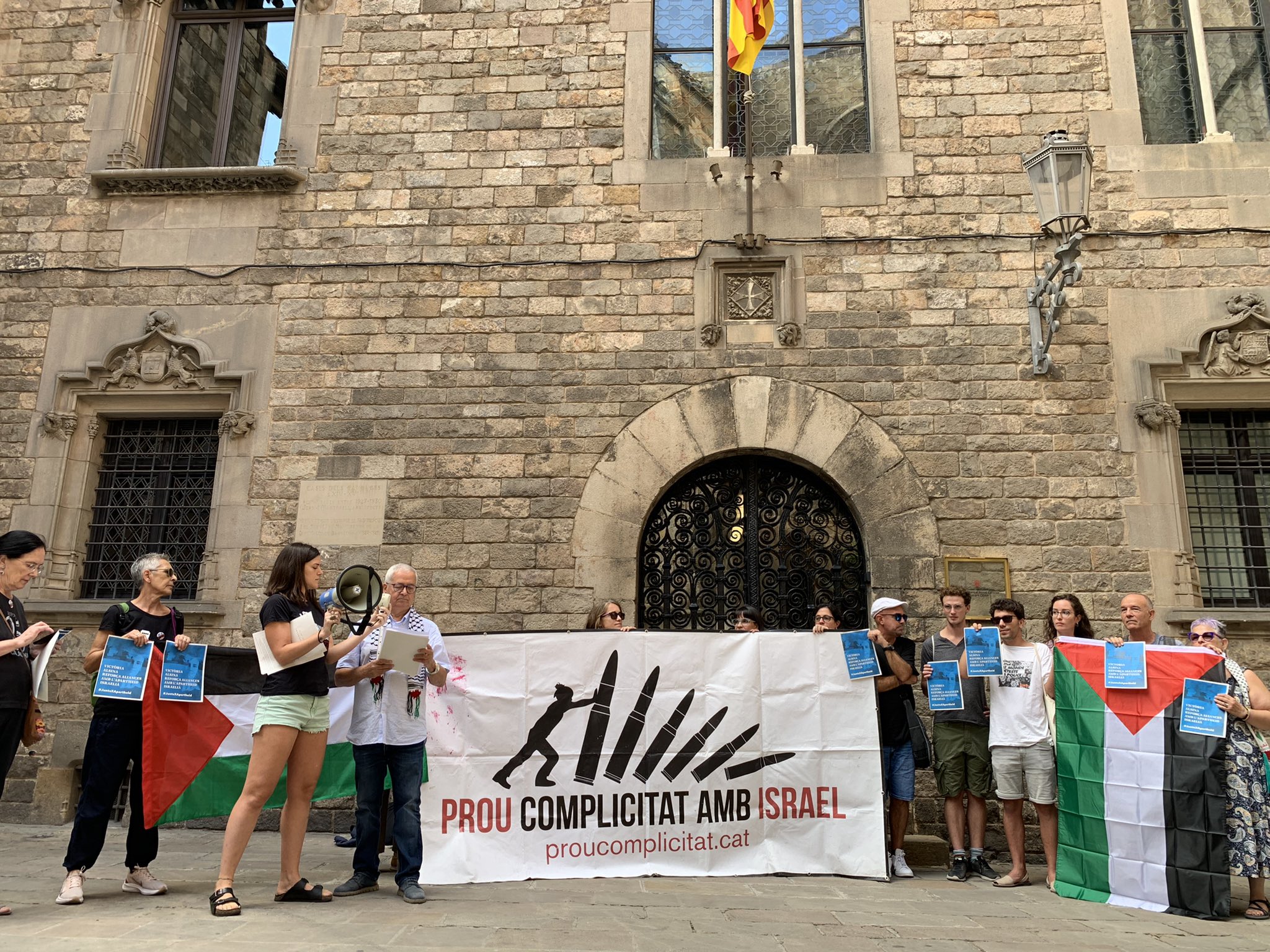
He wasn’t wrong to feel that way. The agreement quickly collapsed as relations between Israel and Palestine soured and the peace process was ditched. Because of that, Jamal argues that the twinning relationship should have been suspended long ago. “What type of cooperation has there been between Tel Aviv and Gaza?”, he asks. In the end, he says, the agreement has simply allowed to “whitewash” Israel’s crimes during the last quarter of a decade. “None of the mayors had moved to revoke the deal, and that had made Barcelona complicit”.
Palestinians Await More Signs of Solidarity
There is probably no better time than now to break any sort of link with the Israeli State. Belligerent Netanyahu’s return to power at the end of last year was only possible with the inclusion of self-described “fascist homophobe” Bezalel Smotrich and provocative Jewish supremacist Itamar Ben-Gvir within the country’s governing cabinet, among others.
Politics in the country have drifted firmly to the hard right, and the rhetorical and factual violence towards Palestinians is at its most alarming rate in recent years: more than 40 people, including children, have been killed since the beginning of 2023.
“We feel a lot of anger and sadness”, Alys Samon admits to Palestine Chronicle. She is one of the activists that has spearheaded the initiative to cut ties between Barcelona and Israel. “The Palestinian people are going through one of the hardest times they’ve ever had to endure, and the Israeli government only promises more death and destruction”.
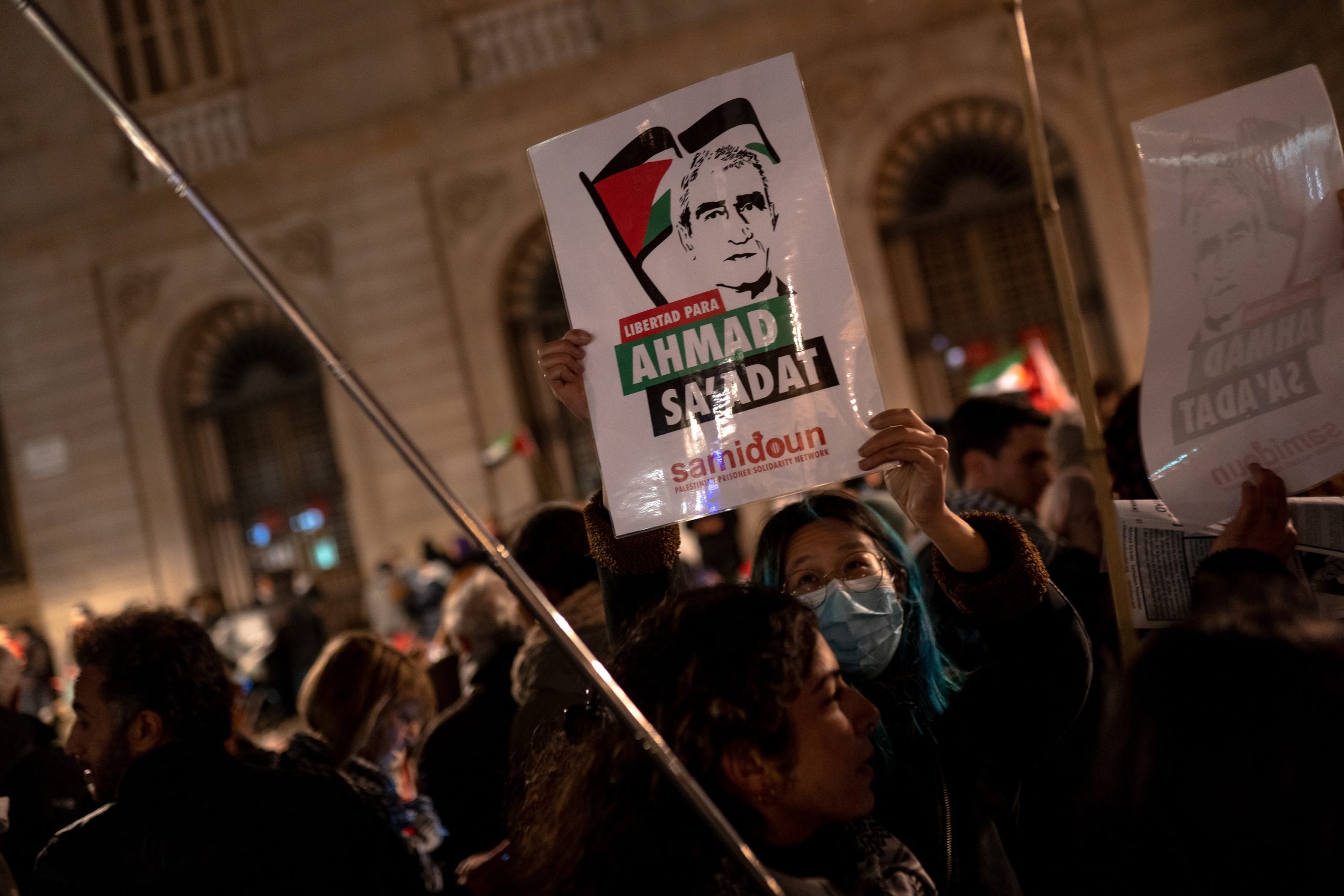
That’s why she believes that the city’s decision to break with the Jewish state comes at an “important” moment: as the Occupation becomes more violent, repressive, and racist, it will be ever harder for the government to showcase itself to the world as a full democracy and a positive actor in the region. “It is becoming ever clearer what Israel is about”, she points out. And then it will be only a matter of time before the rest of the Global North follows suit.
While it is true that the Catalan city’s move has not been matched anywhere else in Europe, it has nonetheless had a moralizing effect on Palestinians. As the story has quickly crept onto the Arabic media and the rebuff to Israel has become evident, the people have turned ecstatic. Salah Jamal recognizes that it is only a “symbolic gesture” that will probably not result in any short-term “changes”. “But because we hardly have any successes, this small victory is enough to send us into euphoria”, he celebrates. “If you read our newspapers, you would think that Palestine has been liberated”.
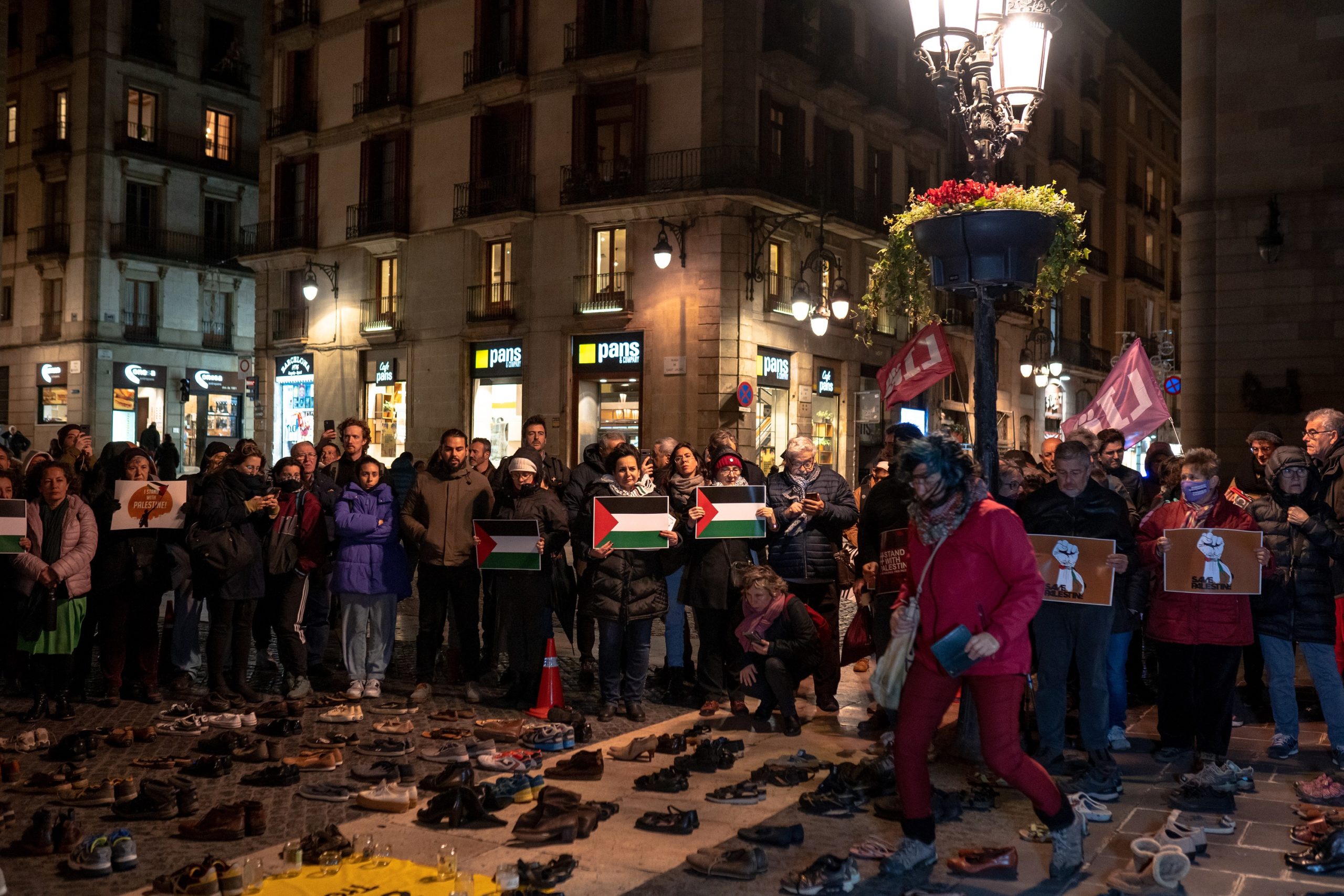
Optimism has also been felt among official bodies. The United Nations Special Rapporteur on the Occupied Palestinian Territories, Francesca Albanese, argued that “it only takes one courageous principled person to start correcting a path of injustice and make history”.
Human rights organizations like Addameer also voiced their gratitude towards such a “brave decision”. And Palestinian Authority Foreign Ministry applauded Barcelona’s example, urging others to follow its steps in order to put “pressure” on the Israeli government.
But Catalonia will not remain motionless while it waits for other institutions in Europe to step forward. Activists are already considering what is to be the next move. Despite the recent success in the regional Parliament –which in July became the first to officially recognize Israel’s practice of apartheid– and the Barcelona City Hall, there is still work to do. Tackling the arms trade between Spain and Israel seems like a good challenge to Alys Samson.
“We’ll keep up the fight until we end every form of complicity”.
(Photo credit: ‘Enough complicity with Israel’ organization, Frederic Esteve, Supplied)

– John McAulay is a journalist based in Barcelona with an interest in social issues and international conflicts. He contributed this article to The Palestine Chronicle.

